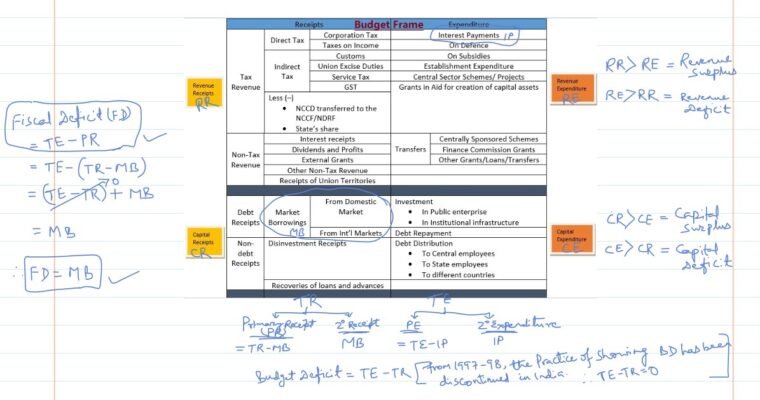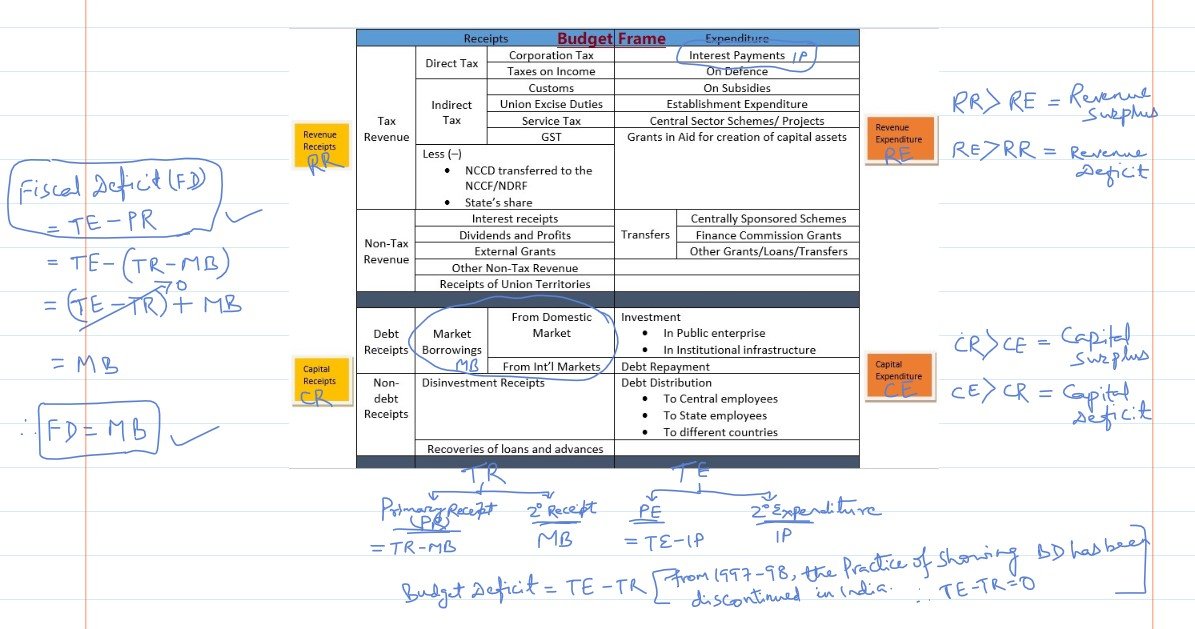AWIP, Economics, Government Policies, GS P6 (Economy, Geography, Environment...)
Q. Explain the concept of fiscal deficit. How does it impact economic growth and inflation?
The Fiscal Deficit (FD) is the difference between the government’s total expenditure and its total receipts (excluding borrowing). A fiscal deficit occurs when this expenditure exceeds the revenue generated. The deficit does not mean debt, which is an addition of annual deficits.

Impact on Economic Growth
- Stimulating Growth: When a government runs a fiscal deficit, it often increases public spending. This injection of money into the economy can boost demand for goods and services, leading to increased production and economic growth.
- Crowding Out: However, if the government borrows heavily to finance the deficit, it can increase interest rates. Higher interest rates can discourage private investment, leading to a phenomenon known as “crowding out.” This can offset the positive impact of increased government spending on growth.
- Infrastructure Development: If the deficit is used to fund productive assets like infrastructure, it can enhance long-term growth potential by improving the business environment.
Impact on Inflation
- Demand-Pull Inflation: Excessive government spending financed by borrowing can lead to increased money supply in the economy. This can fuel demand-pull inflation, where prices rise due to excess demand.
- Supply-Side Constraints: If the economy is operating at full capacity, increased government spending without corresponding increases in production capacity can also lead to inflation.
- Expectations: Inflationary expectations can become self-fulfilling. If people anticipate higher prices, they may demand higher wages, leading to a wage-price spiral.
In conclusion, the impact of fiscal deficit on economic growth and inflation depends on several factors, including:
- The size of the deficit relative to GDP
- The composition of government spending
- The monetary policy stance
- The overall state of the economy
A moderate fiscal deficit can be beneficial for economic growth, especially during recessions. However, excessive deficits can lead to inflation and debt sustainability issues.


